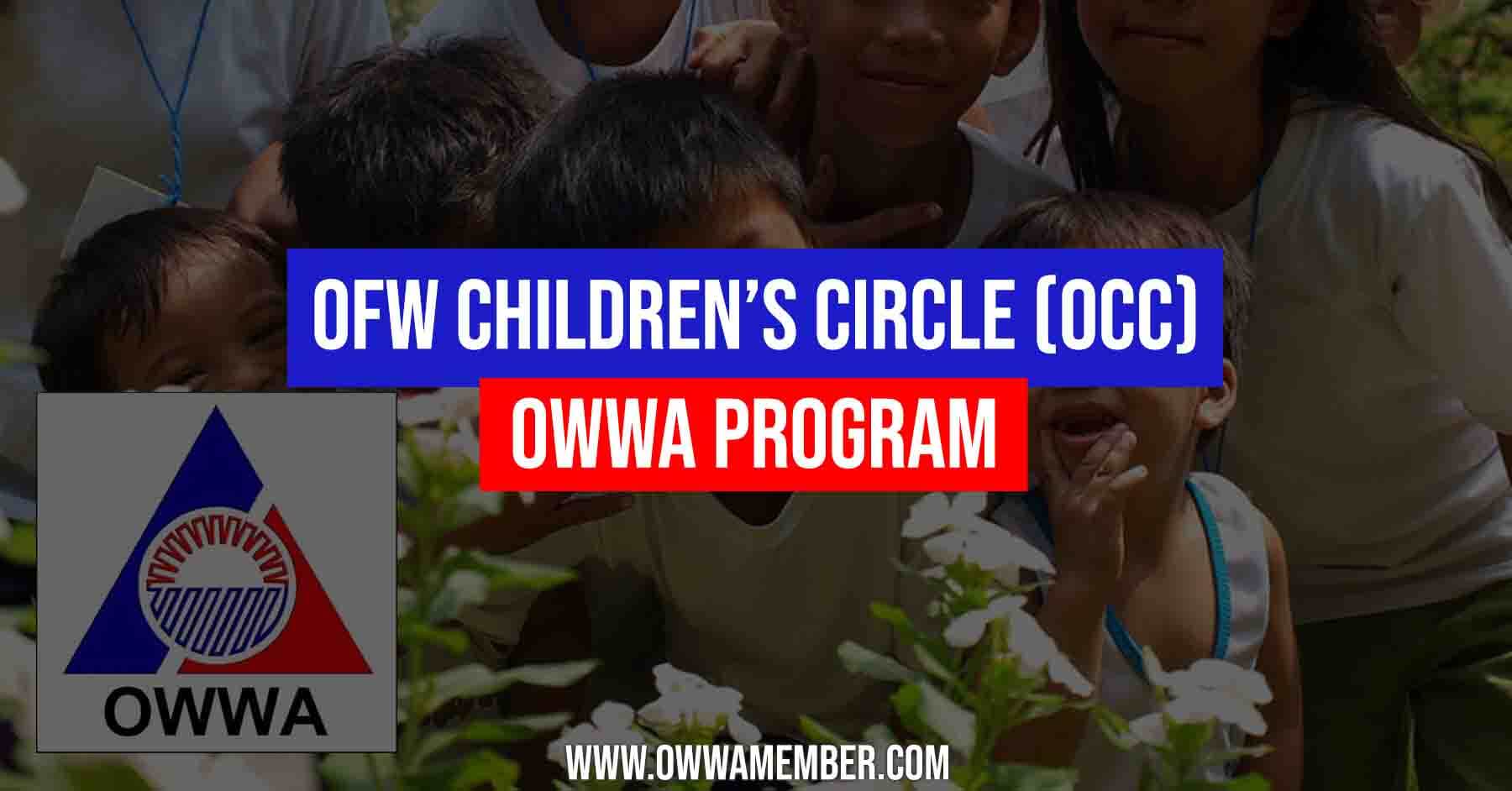The OWWA Board of Trustees has approved the launch of a new OWWA program intended to protect and take care of the children of Overseas Filipino Workers (OFWs). This is called the OFW Children’s Circle (OCC).
With the partnership of the Department of Labor and Employment (DOLE) and the Department of Migrant Workers (DMW), the OCC project will provide holistic programs and services for the benefit of OFW children. OWWA will also work closely with other stakeholders to ensure that the needs of OFW children are being addressed.
Under this program, the Philippine government will help develop the skills and talents of the children dependents and have them gain their full potential. It will also provide protection against drugs and illegal substances.
Contents

Objective of OWWA OFW Children’s Circle
The OCC is committed to assisting OFW children in achieving their maximum potential in community- and nation-building. It will also focus on the societal consequences of labor migration, such as estrangement from an OFW parent, as well as poor mental health and well-being issues. The aim of OCC programs and activities is to assist youngsters deal with the adverse effects and social costs of migration, not to mention pandemic COVID-19.
Purpose of OFW Children’s Circle
The OWWA OFW Children’s Circle is created to provide a venue where the children of OFWs can:
- To showcase the creative skills and talents of OFW children;
- To improve socialization skills and harness coping mechanisms of OFW children;
- To foster awareness in youth-centered and civic advocacies such as environment and climate change, values reorientation, digital literacy and anti-drugs and substance abuse;
- To build camaraderie among OFW children, develop potential leaders among them and encourage the formation of OFW Children’s Circles;
- To encourage OFW children’s participation in policy and program development.
Initial Regions where OCC will be Implemented
The OCC program is currently in its pilot phase and is being implemented in select regions in the Philippines including OWWA Regional Welfare Offices in the National Capital Region, Region 1 (Ilocos), Region 4-A (Southern Tagalog), Region 7 (Central Visayas) and Region 11 (Southern Mindanao).
It is expected to be rolled out nationwide in the near future by all OWWA Regional Welfare Offices.
15 Million Peso Initial Budget for OFW Children’s Circle
There is a budget worth 15 million pesos for the OFW Children’s Circle program. The fund will be used to support the activities and programs under the OCC.
Please see the full press release of this announcement below:
OWWA Central Office, Pasay City
OWWA Board approves Formation of OFW Children’s Circle
The OWWA Board of Trustees chaired by Department of Labor and Employment (DOLE) Secretary Bienvenido “Benny” Laguesma with the Department of Migrant Workers (DMW) Secretary Susan “Toots” Ople in attendance via Zoom, approved Board Resolution No. 7 on the Formation of an OFW Children’s Circle, last Friday, July 15, 2022.
Brought on by the directive of President Ferdinand R. Marcos Jr. to provide programs for the welfare and protection of families, particularly overseas Filipino workers’ (OFW) children left behind, the OFW Children’s Circle or OCC shall be OWWA’s new flagship program for the protection and welfare of OFW children.
The OCC aims to help OFW children to achieve their full potential in community- and nation-building. It will also address the societal impact of labor migration, such as separation from an OFW-parent, as well as negative effects on their well-being and mental health. OCC programs and activities aim to help children cope with the negative effects and social costs of migration, not to mention the effects of the COVID-19 pandemic and other global emergencies.
Specifically, the OCC shall serve as a venue for the following:
1) To showcase the creative skills and talents of OFW children;
2) To improve socialization skills and harness coping mechanisms of OFW children;
3) To foster awareness in youth-centered and civic advocacies such as environment and climate change, values reorientation, digital literacy and anti-drugs and substance abuse;
4) To build camaraderie among OFW children, develop potential leaders among them and encourage the formation of OFW Children’s Circles;
5) To encourage OFW children’s participation in policy and program development.
The OCC shall be initially implemented by OWWA Regional Welfare Offices in the National Capital Region, Region I (Ilocos), Region IV-A (Southern Tagalog), Region VII (Central Visayas) and Region XI (Southern Mindanao). Thereafter, the Program will be fully implemented by all OWWA Regional Welfare Offices.
For its initial implementation, the sum of P15,000,000.00 was allocated by the OWWA Board of Trustees to cover operational and administrative expenses of the program.
The OWWA Board of Trustees is the highest policy-making body of the Overseas Workers Welfare Administration.
Video: Setting up the OFW Children’s Circle to Guide Kids of OFWs
Here’s a video report of the announcement where the OWWA agency board has approved the setting up of the OFW Children community.
This program is in line with the mandate of Philippine President Ferdinand ‘Bong Bong’ Marcos Jr. to give a better life or OFWs under his administration.
Video: Challenges of the Children of OFWs
Check out this video which gives an overview and insight of the plight of OFW children:
Summary
The OCC is a welcome development for OFW children who often feel neglected and left behind when their parents go abroad for work. With the OCC in place, they will have a support system that will help them cope with the challenges of having a parent overseas. We hope that this will lead to a better future for all OFW children.
The OCC shall serve as a venue for showcasing the creative skills and talents of OFW children; improving socialization skills and harnessing coping mechanisms; fostering awareness in youth advocacies such as environment & climate change values reorientation digital literacy anti-drugs/substance abuse; building camaraderie among OFW children, developing potential leaders and encourage participation in policy & program development.